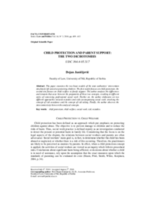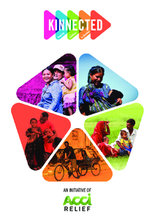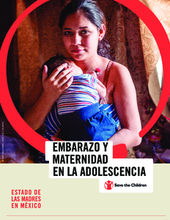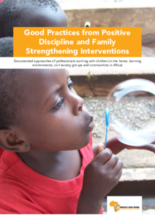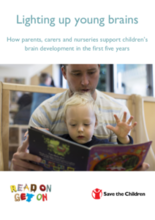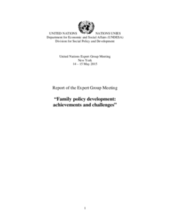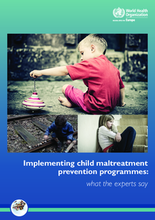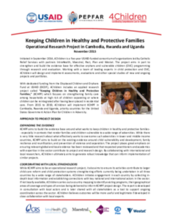Displaying 501 - 510 of 909
This paper examines the two basic models of the state authorities’ intervention into family life aimed at protecting children.
Kinnected is a program run in 10 countries by the organization ACCI Relief aimed at preserving and strengthening families and assisting children currently in residential care to achieve their right to be raised in a family. This report describes Kinnected’s programs and initiatives underway in Cambodia, Sri Lanka, and Lesotho and includes some individual case studies.
Desde el año 2000, el Ranking anual sobre el Estado Mundial de las Madres se ha convertido en una herramienta fiable para mostrar en qué países les va mejor a las madres y sus bebés y dónde enfrentan las mayores dificultades.
This document highlights examples of good practices in parenting and family strengthening interventions based on evaluations of programs and initiatives throughout Africa.
This report from Save the Children outlines the rapid development that takes place in the brain in the early years of life and the crucial role that caregivers play in supporting this development.
This paper discusses the style and efficacy of child preservation services for the purpose of reducing child abuse and neglect.
The United Nations, Department for Economic and Social Affairs, Division for Social Policy and Development released the Final Report of the Expert Group Meeting (EGM) on "Family Policy Development: Achievements and Challenges” which was produced after the 14-15 May 2015 EGM. The meeting focused on changing families, family law reforms, violence in the family and their impact on family policy development.
This study reports on the findings from a randomized control trial of a 10-week home visiting program, Promoting First Relationships® (Kelly, Sandoval, Zuckerman, & Buehlman, 2008), for a subsample of 43 reunified birth parents of toddlers that were part of the larger trial.
This handbook authored by the World Health Organization Europe and Liverpool John Moores University – based on a series of interviews with the world's leading experts on preventing child maltreatment – provides practical information to policy-makers, practitioners and others on implementing prevention programmes. The handbook describes key principles for selecting and delivering programmes, and important practical considerations, including resources and technical support.
This two-page brief from USAID describes the “Keeping Children in Healthy and Protective Families” project, a project that is part of 4Children that “focuses on strengthening family care among households at high risk of children separating or where children can be reintegrated after having been placed in residential care.”

